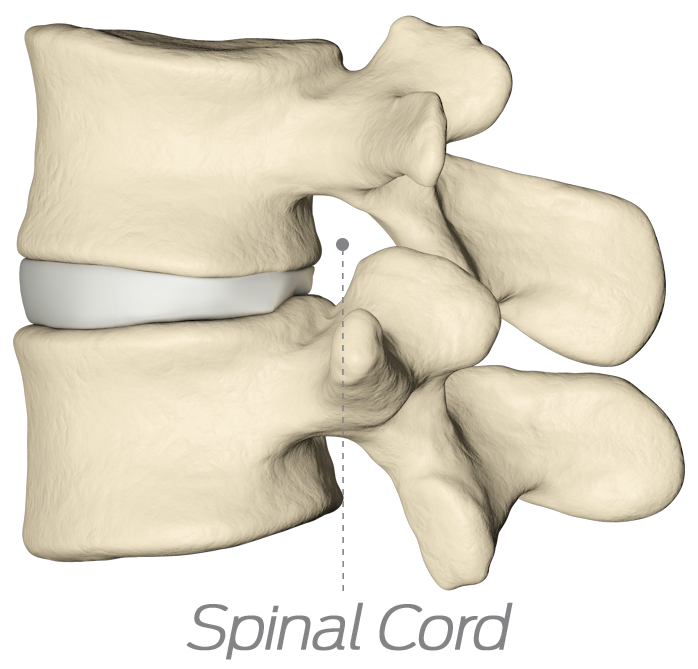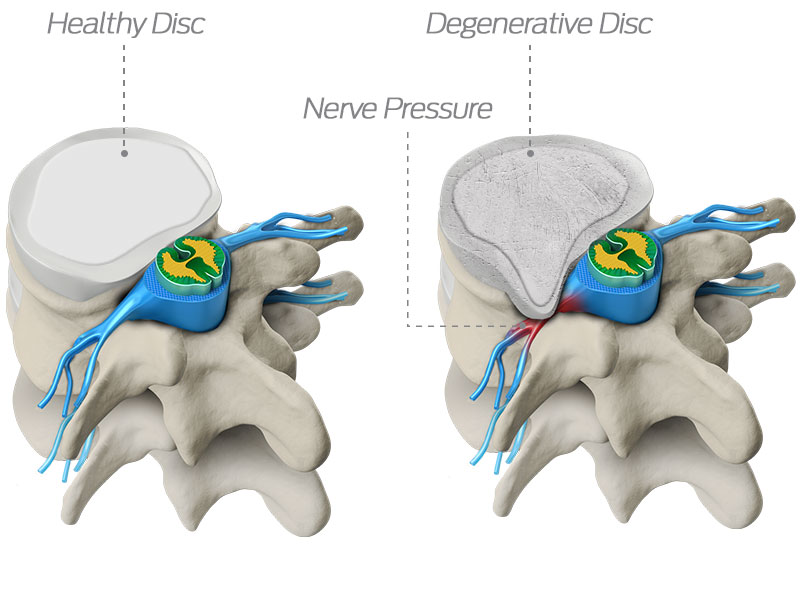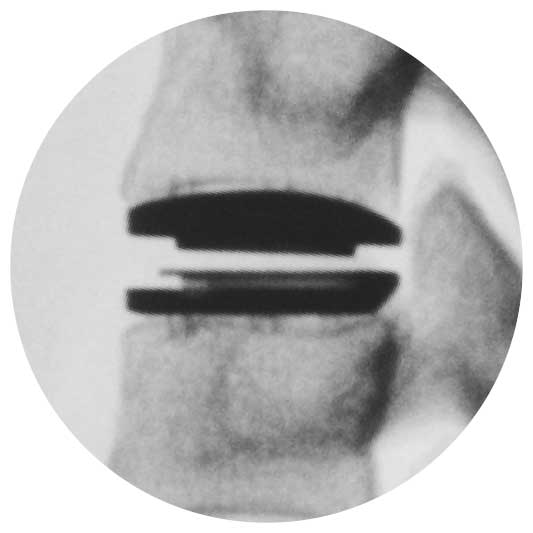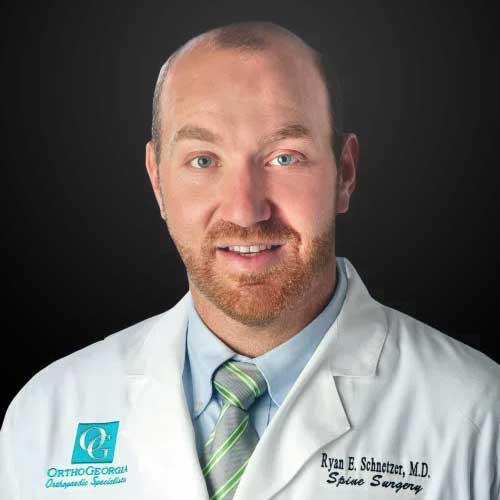 Your spine has important responsibilities.
Your spine has important responsibilities.
No matter if you’re sitting, standing, lying down or moving about, your spine is always at work. Is it any wonder that your spine might have suffered from all the wear and tear it has endured over the years?
What is degenerative disc disease? It occurs when the discs, which act like small pieces of shock-absorbing padding between the bones in your spinal column, dry up, crack and wear away. Without this padded protection, the bones of your spine can rub against each other, resulting in constant aches of pain, sudden jolts of sharp pain or a combination of both.
 If you are experiencing spinal pain and it is specific to your lower back — or, the lumbar region — that is considered lumbar degenerative disc disease. If your spinal pain is more pronounced around the back of your neck and radiates down your arms, that is considered cervical degenerative disc disease.
If you are experiencing spinal pain and it is specific to your lower back — or, the lumbar region — that is considered lumbar degenerative disc disease. If your spinal pain is more pronounced around the back of your neck and radiates down your arms, that is considered cervical degenerative disc disease.
Degenerative disk disease is a common condition in many people, especially in women and anyone who is 40 and older. Besides age and gender, additional causes of degenerative disc disease include:
Individuals with acute or chronic back and neck pain don’t need to suffer from aches and soreness. Treatments are available to help you return to your favorite activities with your friends and family members.
Your physician will begin with the least-invasive remedies, including physical therapy sessions, heat at the pain site and anti-inflammatory medicines. If those treatments don’t relieve your pain, your doctor might add injections and nerve root blocks to your pain management regimen.
 Degenerative Disc Disease Surgery
Degenerative Disc Disease SurgerySurgical advancements have made it possible to alleviate the pain from degenerative disc disease. An alternative to spinal fusion, total disc replacement (TDR) is performed by a surgeon who specializes in spinal surgery. The damaged disc is removed from either the lower back (lumbar) region of the spine or the neck (cervical) region, and a replacement disc is inserted in its place by the surgeon.
Disc replacement surgery can lead to reduced pain, regained movement and increased quality of life. Learn if disc replacement surgery is right for you.
 About the Author:
About the Author:
Dr. Ryan E. Schnetzer is a Board Certified, Fellowship Trained Orthopaedic Spine Surgeon at OrthoGeorgia. He completed his degree graduating cum-laude while playing football on two SEC Championship teams for the University of Georgia. While at the University of Georgia, Dr. Schnetzer received the SEC Male Scholar Athlete Award, Coaches Senior Leadership Award, and achieved the SEC Academic Honor Roll three years running. His special interests include treating mechanical and neurological disorders of the spine, disc replacement, spine deformity and instability. He is certified in the latest minimally invasive robot-assisted techniques for nerve decompression and fusion that provides for a shorter hospital stay, less recovery.
These individuals can inspire your journey to healing and life after disc replacement surgery—and the hope of freedom from spine-induced pain and discomfort.
To Find a Spine Surgeon That's Right for You, Use our Surgeon Locator